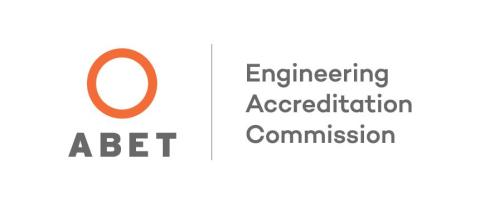The Environmental Engineering major at UNH offers a gateway to safeguarding the environment and natural resources as well as protecting public health and ecosystems through a curriculum that combines engineering principles with core sciences. Here, you will tackle pressing issues like equitable access to water resources; novel technologies for treatment of water, waste, soil, and air pollutants; and evolving environmental policies that impact our society. Hands-on experiences are derived from coursework, service-learning opportunities (such as Engineers without Borders), and engagement in research projects led by passionate faculty. Capstone projects and internship opportunities at engineering firms and municipalities provide career development opportunities that prepare you to play a leading role in developing sustainable and climate-adapted communities.
What is a Bachelor of Science in environmental engineering?
This program is tailored to students who want to use engineering practices to support Earth’s ecosystems, which humans rely on for natural resources, sustenance and pleasure. Environmental engineers protect these ecosystems, infrastructures and the environment from human impacts and natural disasters. They also protect environmental and public health from natural and man-made threats such as chemicals and pathogens in drinking water. Students learn to design facilities that treat water so it’s safe to drink and design green infrastructures and responses to environmental disasters and contamination. They also learn how to prepare wastes, stormwater and wastewaters for safe discharge into the environment. Students in this program work on interdisciplinary teams to deliver real-world solutions that increase the sustainability and resilience of human societies.
Why study environmental engineering at UNH?
You’ll develop the skills and knowledge necessary to become a professional engineer with a productive career that contributes to sustainable societies. In this program, faculty know each student’s name, and they provide the tools to help every student succeed. Nearly half of our students secure paid research internships with faculty, and many others find well-paid summer internships with consulting engineering companies. In 2017, 90 percent of our graduates secured employment or were admitted to a graduate program.
Potential careers
- Architecture and engineering firms
- Cities and towns
- Manufacturing industries
- Nongovernmental organizations
- State and federal agencies
Curriculum & Requirements
Environmental engineers graduating with a B.S. EnvE degree will plan, design, and construct public and private facilities to minimize the impact of human activity on the environment through sustainable approaches that protect human health. For example, environmental engineers design and build drinking water treatment systems, municipal and industrial wastewater treatment plants, solid waste management facilities, air pollution control systems, contaminated ground water remediation systems, and hazardous waste remediation facilities. These facilities must meet regulatory requirements, be cost effective to build and maintain, be safe to operate, and have minimal environmental impact.
In CEE 420 Environmental Engineering Gateway, students are introduced to the full spectrum of environmental engineering projects that they will subsequently explore in design teams during their degree program. In CEE 505 Introduction to Sustainable Engineering, students learn tools to analyze life cycles and are exposed to global actions for sustainability. In CEE 520 Environmental Pollution and Protection: A Global Context, students tour field sites, and through junior and senior year classes and student organizations (ASCE, EWRI, EWB), they interact with engineers who talk about engineering consulting, environmental policy, and design practices applied to local and global projects. As part of these projects, students:
- analyze treatment alternatives;
- recommend a system that meets regulatory operational needs, and is sustainable; and
- prepare an implementation schedule and project budget.
Students choose elective courses from areas of Sustainability, Water Resources, Environmental Engineering Design, and other relevant topics. Design projects are completed in a minimum of two design electives. In the capstone design experience courses, students work on a multi-disciplinary environmental engineering project and apply skills learned in other courses while working with real-world problems and clients.
The Environmental Engineering program (B Sci in Environmental Engineering) is accredited by the Engineering Accreditation Commission of ABET, https://www.abet.org, under the General Criteria and the Program Criteria for Environmental Engineering and Similarly Named Engineering Programs.
Sample Degree Plan
This sample degree plan serves as a general guide; students collaborate with their academic advisor to develop a personalized degree plan to meet their academic goals and program requirements.
| First Year | ||
|---|---|---|
| Fall | Credits | |
| CEE 420 | Environmental Engineering Gateway | 3 |
| ENGL 401 | First-Year Writing 2 | 4 |
| CHEM 405 | Chemical Principles for Engineers | 4 |
MATH 418 | Analysis and Applications of Functions 1, 4 | |
| Discovery Elective 2 | 4 | |
| Credits | 15 | |
| Spring | ||
| CEE 402 | 2D Computer Aided Design | 3 |
| MATH 425 | Calculus I 1, 2 | 4 |
| PHYS 407 | General Physics I 2 | 4 |
| Discovery Elective 2 | 4 | |
| Credits | 15 | |
| Second Year | ||
| Fall | ||
| CEE 403 | GIS for Civil and Environmental Engineering | 3 |
or other Geospatial Elective | ||
| CEE 502 | Project Engineering | 3 |
| CEE 520 | Environmental Pollution and Protection: A Global Context 2 | 4 |
| MATH 426 | Calculus II | 4 |
| Discovery Elective 2 | 4 | |
| Credits | 18 | |
| Spring | ||
| CEE 500 | Statics for Civil Engineers | 3 |
| CEE 505 | Introduction to Sustainable Engineering | 3 |
| MATH 527 | Differential Equations with Linear Algebra | 4 |
| Discovery Elective 2 | 4 | |
| Public Health Elective | 4 | |
| Credits | 18 | |
| Third Year | ||
| Fall | ||
| CEE 650 | Fluid Mechanics | 4 |
| CEE 720 | Waste Management and Site Remediation | 3 |
| Sustainability Elective | 3-4 | |
| Math Statistics Elective | 4 | |
| Discovery Elective 2 | 4 | |
| Credits | 18-19 | |
| Spring | ||
| CEE 620 | One Water Engineering | 4 |
| CEE 724 | Environmental Engineering Microbiology 2 | 4 |
| ESCI 654 | Fate and Transport in the Environment | 4 |
| Water Resources Elective | 3-4 | |
| Credits | 15-16 | |
| Fourth Year | ||
| Fall | ||
| CEE 721 | Environmental Sampling and Analysis | 4 |
| CEE 723 | Environmental Engineering Chemistry | 4 |
| CEE 797 | Introduction to Project Planning and Design 2 | 2 |
| CEE Design Elective (1) | 3-4 | |
| CEE Elective (1) | 3-4 | |
| Credits | 16-18 | |
| Spring | ||
| CEE 731 | Advanced Water Treatment Processes | 4 |
| CEE 798 | Project Planning and Design 2 | 2 |
| CEE Elective (1) | 3-4 | |
| CEE Design Elective (1) | 3-4 | |
| Water Resources Elective | 3-4 | |
| Credits | 15-18 | |
| Total Credits | 130-137 | |
The Environmental Engineering B.S. program requires a minimum of 130 total credits for graduation.
- 1
Students who passed the ALEKS placement examination as determined by the Mathematics Department may enroll in MATH 425 Calculus I. Subsequent MATH courses (MATH 426 Calculus II, MATH 527 Differential Equations with Linear Algebra Differential Equations with Linear Algebra, MATH 644 Statistics for Engineers and Scientists) will be taken one semester earlier than shown here.
- 2
Discovery Program requirements are fulfilled with the following courses:
- Writing Skills: ENGL 401 First-Year Writing
- Quantitative Reasoning (QR): MATH 425 Calculus I
- Physical Science (PS): PHYS 407 General Physics I
- Environmental, Technology, and Society (ETS): CEE 520 Environmental Pollution and Protection: A Global Context
- Biological Science (BS): CEE 724 Environmental Engineering Microbiology
- Capstone: CEE 797 Introduction to Project Planning and Design and CEE 798 Project Planning and Design
- Fine and Performing Arts (FPA), Historical Perspectives (HP), Humanities (HUMA), Social Science (SS), and World Cultures (WC): Courses in the EnvE curriculum designated Discovery Electives can be selected from the University's approved Discovery Program courses to fulfill these requirements. One of these electives must have an Inquiry (INQ) attribute.
- 3
Approved lists of sustainability, water resources, design and Environmental/Civil electives are available from the EnvE undergraduate coordinator.
- 4
MATH 418 does not count toward the minimum required credits for the degree program.
Degree Requirements
All Major, Option and Elective Requirements as indicated.
*Major GPA requirements as indicated.
Major Requirements
To qualify for graduation, an EnvE major must: have satisfied all specified course requirements, have satisfied the University's Academic Requirements, have a minimum cumulative grade-point average of 2.00, and have a minimum grade-point average of 2.00 in engineering courses.
At the end of the sophomore year, students are required to have a minimum overall grade-point average of 2.00 and a minimum grade-point average of 2.00 in CEE 420, MATH 425, CHEM 405, PHYS 407, MATH 426, CEE 500, CEE 520 to be permitted to enroll in junior-level courses.
Several courses required in the curriculum may fulfill both major and Discovery Program requirements as described in footnotes.
For a full listing of the requirements distributed over four years of study please refer to the sample degree plan.
| Code | Title | Credits |
|---|---|---|
| Required Courses | ||
| CEE 402 | 2D Computer Aided Design | 3 |
| CEE 420 | Environmental Engineering Gateway | 3 |
| CEE 500 | Statics for Civil Engineers | 3 |
| CEE 502 | Project Engineering | 3 |
| CEE 505 | Introduction to Sustainable Engineering | 3 |
| CEE 520 | Environmental Pollution and Protection: A Global Context 1 | 4 |
| CEE 620 | One Water Engineering | 4 |
| CEE 650 | Fluid Mechanics | 4 |
| CEE 720 | Waste Management and Site Remediation | 3 |
| CEE 721 | Environmental Sampling and Analysis | 4 |
| CEE 723 | Environmental Engineering Chemistry | 4 |
| CEE 724 | Environmental Engineering Microbiology 1 | 4 |
| CEE 731 | Advanced Water Treatment Processes | 4 |
| CHEM 405 | Chemical Principles for Engineers | 4 |
| or CHEM 403 & CHEM 404 | General Chemistry I and General Chemistry II | |
| ESCI 654 | Fate and Transport in the Environment | 4 |
| MATH 425 | Calculus I 1 | 4 |
| MATH 426 | Calculus II | 4 |
| MATH 527 | Differential Equations with Linear Algebra | 4 |
| MATH 644 | Statistics for Engineers and Scientists | 4 |
| or MATH 539 | Introduction to Statistical Analysis | |
| PHYS 407 | General Physics I 1 | 4 |
| Capstone Design Experience | ||
| CEE 797 | Introduction to Project Planning and Design 1 | 2 |
| CEE 798 | Project Planning and Design 1 | 2 |
Electives
- Design and Environmental/Civil Engineering Electives: four 700-level courses are required, two courses must be Design Electives, with a minimum of 12 total credits.
- Additional Electives: One CEE Lab Elective, one Geospatial Elective, one Sustainability Elective, one Public Health Elective and two Water Resources Electives are required.
- Each elective course can only be used to fulfill one category.
- Course lists are subject to change, check with advisor.
| Code | Title | Credits |
|---|---|---|
| Design Electives or Environmental/Civil Engineering Electives | ||
| CEE 719 | Green Building Design | 3 |
| CEE 729 | Sources, Control, and Stewardship of Air Pollution | 4 |
| CEE 730 | Public Health Engineering for Rural and Developing Communities | 3 |
| CEE 732 | Solid Waste Facility and Remediation System Design | 4 |
| CEE 755 | Design of Pressurized Water Transmission Systems | 4 |
| CEE 758 | Stormwater Management Designs | 3 |
| CEE 759 | Stream Restoration | 4 |
| OE 720 | Design of Recirculating Aquaculture Systems | 3 |
| Code | Title | Credits |
|---|---|---|
| Environmental/Civil Engineering Electives | ||
| CEE 706 | Environmental Life Cycle Assessment | 3 |
| CEE 719 | Green Building Design | 3 |
| CEE 722 | Introduction to Marine Pollution and Control | 4 |
| CEE 729 | Sources, Control, and Stewardship of Air Pollution | 4 |
| CEE 730 | Public Health Engineering for Rural and Developing Communities | 3 |
| CEE 732 | Solid Waste Facility and Remediation System Design | 4 |
| CEE 733 | Public Infrastructure Asset Management | 4 |
| CEE 751 | Open Channel Flow | 3 |
| CEE 753 | Snow Hydrology | 3 |
| CEE 754 | Engineering Hydrology | 3 |
| CEE 755 | Design of Pressurized Water Transmission Systems | 4 |
| CEE 758 | Stormwater Management Designs | 3 |
| CEE 759 | Stream Restoration | 4 |
| CEE 768 | Geo-Environmental Engineering | 3 |
| CEE 768 | Geo-Environmental Engineering | 3 |
| OE 720 | Design of Recirculating Aquaculture Systems | 3 |
| OE 757 | Coastal Engineering and Processes | 3 |
| OE 758 | Design of Ocean Structures | 3 |
| Code | Title | Credits |
|---|---|---|
| CEE Lab Electives | ||
| Select one course from the following: | ||
| CEE 665 | Soil Mechanics | 0 or 4 |
| CEE 721 | Environmental Sampling and Analysis | 4 |
| Code | Title | Credits |
|---|---|---|
| Geospatial Electives | ||
| Select one course from the following: | ||
| CEE 403 | GIS for Civil and Environmental Engineering | 3 |
| CEE 404 | Surveying and Mapping | 0 |
| NR 658 | Introduction to Geographic Information Systems | 4 |
| NR 757 | Remote Sensing of the Environment | 4 |
| Code | Title | Credits |
|---|---|---|
| Sustainability Electives | ||
| Select one course from the following: | ||
| CEE 706 | Environmental Life Cycle Assessment | 3 |
| CEE 719 | Green Building Design | 3 |
| CEE 733 | Public Infrastructure Asset Management | 4 |
| CHBE 705 | Fossil Fuels and Renewable Energy Sources | 4 |
| ME 706 | Renewable Energy: Physical and Engineering Principles | 3 |
| Code | Title | Credits |
|---|---|---|
| Water Resources Electives | ||
| Select two courses from the following: | ||
| CEE 751 | Open Channel Flow | 3 |
| CEE 753 | Snow Hydrology | 3 |
| CEE 754 | Engineering Hydrology | 3 |
| CEE 755 | Design of Pressurized Water Transmission Systems | 4 |
| CEE 758 | Stormwater Management Designs | 3 |
| CEE 759 | Stream Restoration | 4 |
| ESCI 705 | Principles of Hydrology | 4 |
| ESCI 710 | Groundwater Hydrology | 4 |
| OE 757 | Coastal Engineering and Processes | 3 |
| Code | Title | Credits |
|---|---|---|
| Public Health Electives | ||
| Select one course from the following: | ||
| HMP 403 | Introduction to Public Health | 4 |
| HMP 501 | Epidemiology and Community Medicine | 4 |
| HMP 715 | Environmental Health | 4 |
| CEE 730 | Public Health Engineering for Rural and Developing Communities | 3 |
- 1
Discovery Program requirements are fulfilled with the following courses:
- Quantitative Reasoning (QR): MATH 425 Calculus I
- Physical Science (PS): PHYS 407 General Physics I
- Environmental, Technology, and Society (ETS): CEE 520 Environmental Pollution and Protection: A Global Context
- Biological Science (BS): CEE 724 Environmental Engineering Microbiology
- Capstone: CEE 797 Introduction to Project Planning and Design and CEE 798 Project Planning and Design
Program Learning Outcomes
By the time of graduation students have attained:
- an ability to identify, formulate, and solve complex engineering problems by applying principles of engineering, science, and mathematics.
- an ability to apply engineering design to produce solutions that meet specified needs with consideration of public health, safety, and welfare, as well as global, cultural, social, environmental, and economic factors.
- an ability to communicate effectively with a range of audiences.
- an ability to recognize ethical and professional responsibilities in engineering situations and make informed judgments, which must consider the impact of engineering solutions in global, economic, environmental, and societal contexts.
- an ability to function effectively on a team whose members together provide leadership, create a collaborative and inclusive environment, establish goals, plan tasks, and meet objectives.
- an ability to develop and conduct appropriate experimentation, analyze and interpret data, and use engineering judgment to draw conclusions.
- an ability to acquire and apply new knowledge as needed, using appropriate learning strategies.
Explore Program Details
The Environmental Engineering program (B Sci Environmental Engineering) is accredited by the Engineering Accreditation Commission of ABET, www.abet.org, under the General Criteria and the Program Criteria for Environmental Engineering and Similarly Named Engineering Programs.

- Pursue and disseminate knowledge through teaching, scholarship, outreach, and public service.
- Provide excellent undergraduate and graduate education.
- Advance the state-of-the-art in science and engineering by conducting research.
- Enhance the quality of life for people in New Hampshire and beyond.
In accordance with its mission, the Department of Civil and Environmental Engineering seeks to attain the specific Educational Objectives and Outcomes listed herein.
Students from Maine, Massachusetts and Rhode Island who matriculate in the UNH BSENE program are eligible for reduced tuition made available through the New England Regional Student Program (NERSP).
ENE Program
Student Code of Ethics
University of New Hampshire, Durham, NH
I understand that the work of environmental engineers impacts society in a variety of social, economic, and environmental ways and that professional negligence can result in the loss of property, widespread illness, damage to the environment, and the loss of human life. I understand that environmental engineering practice, therefore, requires high ethical standards that hold paramount the safety health, and welfare of the public. By signing below, I pledge the following:
I commit myself to be honest and to honor and respect the rights of others.
I will not plagiarize, cheat on exams, assist others in doing so, or tolerate such behavior in others.
I have received and read the ASCE Engineering Code of Ethics. I understand what is written therein, and pledge to uphold this Code of Ethics both as a student and as a practicing engineer.
I have received and read Section 9 on Academic Honesty of the document Student Rights, Rules, and Responsibilities, of the University of New Hampshire and will pursue my academic work at UNH in a straightforward and truthful manner, free from deception or fraud. Furthermore, I understand the procedures for dealing with academic misconduct and understand the consequences including the possibility of outright dismissal from UNH.
________________________________
Printed Name
________________________________
Signature
________________________________
Date Signed
Those interested in the Environmental Engineering major may also be interested in the following advanced degrees. Students in the program also have the opportunity to participate in the UNH accelerated master’s program.
Civil & Environmental Engineering M.Eng.


















